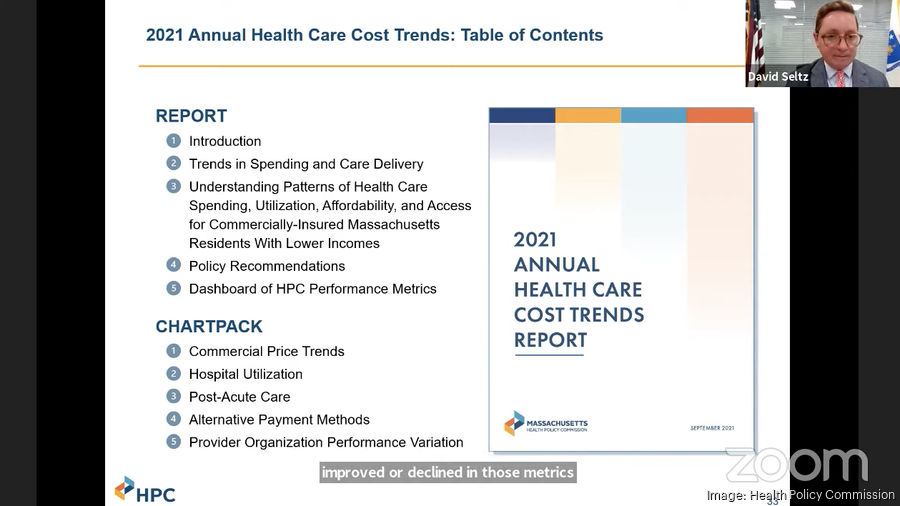The state’s Health Policy Commission is proposing a cap on the prices the most expensive hospitals are able to charge, adopting a more aggressive stance to reigning in rising health care spending.
Within its annual Cost Trends Report, discussed in a hearing on Wednesday, the commission recommended a number of policies. The most targeted measures were pointed at doctors and health systems, including:
- Establishing price caps to limit the growth of commercial prices of the most expensive services, insurers or health systems.
- Limiting “facility fees,” which health systems often tack on to charges delivered at outpatient sites affiliated with hospitals to account for the physical costs of the facility.
- Enhanced scrutiny of health system expansions, a measure proposed while two of the most expensive health systems in the state — Mass General Brigham and Boston Children's Hospital — have proposed multi-million outpatient expansions.
- Adopting a default out-of-network payment rate, when patients unwittingly go to a doctor that does not contract with their insurer.
- Changing how providers are identified for a “performance improvement plan,” a process the state has never fully used that is intended to force doctors and health systems to address excessive spending or face fines.
The commission said it would work closely with Gov. Baker's administration and legislators to turn the proposals into policy.
“The governor indicated that we will be filing, no later than January, health care legislation again,” said Commissioner Marylou Sudders, who also functions as the state’s secretary of Health and Human Services. “And so the recommendations in here are very informative and helpful to us as we think about that legislation.”
Proposals to establish caps on pricing would be particularly progressive. No other state besides Maryland — which sets health care pricing more broadly — has instituted price caps. Other states have only capped pricing on services as a percentage of Medicare.
Which services or which providers would be targeted with price caps was not spelled out, but it would be focused on only the highest-priced providers, the commission said.
The measures are part of an aggressive stance the commission has taken in recent months approaching the 10-year anniversary of its founding legislation next year, as it's struggled to hold back health care spending growth. Wednesday’s recommendations were in line with ideas floated at a July meeting, where commissioners were particularly critical of recent increases above state benchmarks.
Commissioner Marty Cohen said the proposals are just suggestions, many of which have already been floated in the past.
“How we market these to the administration and legislature is really going to be important because without (these), we're going to continue to see rises in health costs that are just unsustainable," Cohen said.
Several of the proposals, including bans on facility fees and a default out-of-network rate, were supported by the Massachusetts Association of Health Plans, but the health insurance lobbying group spoke against affordability targets.
“Hospital outpatient spending is higher in Massachusetts than anywhere else in the country and hospital inpatient and prescription drug costs continue to rise and challenge our ability to meet the benchmark,” said Lora Pellegrini, president and CEO of MAHP, in a release. “Since health care premiums reflect the underlying cost of care, we must focus on reining in these cost drivers if we hope to make health care more affordable.”
Total assets
| Rank | Prior Rank | Organization/Prior rank (*unranked in 2020)/ |
|---|---|---|
1 | 1 | Combined Jewish Philanthropies of Greater Boston Inc. |
2 | 2 | Museum of Fine Arts, Boston |
3 | 3 | GBH |





